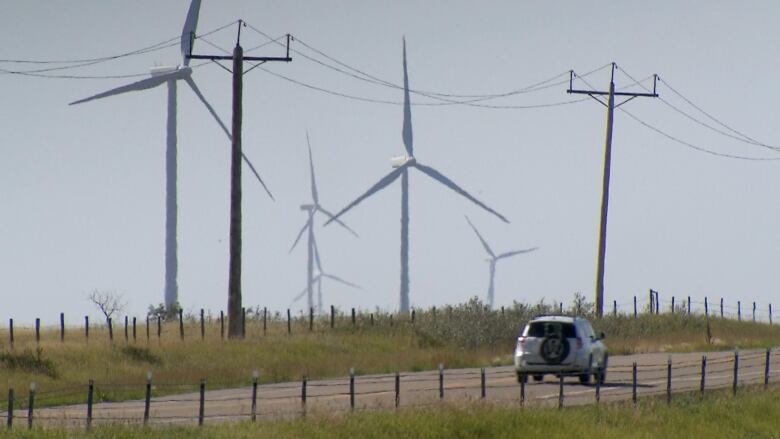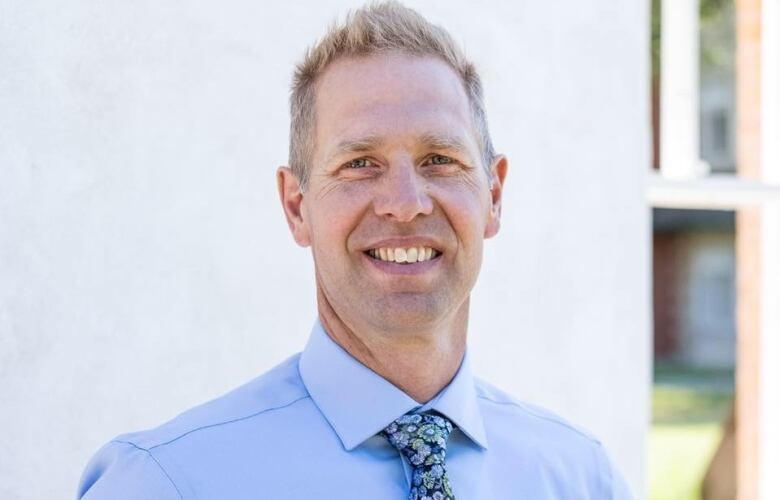Renewables pause in Alberta affecting 118 projects worth $33B, think tank says
Pembina Institute says projects represent 'a significant source of investment, jobs, and local revenues'

A clean energy think tank says Alberta's pause on approvals for new renewable energy projects is affecting 118 projects worth $33 billion of investment.
In a new report, the Pembina Institute says those projects would create enough jobs to keep 24,000 people working for a year.
It says those projects represent what could be $263 million in local taxes and leases for landowners in 27 municipalities.
Earlier this month, the province's United Conservative government said it would pause all renewable energy approvals until February as it considers issues such as land use and reclamation.
The utilities regulator said Wednesday it is to continue to examine projects, but won't issue any new approvals.
The move has stunned Alberta's booming renewables industry, with several companies with projects in the works saying the uncertainty is causing them to look elsewhere.
Report methodology
The report looked at various economic impacts the renewableprojects could have.
"Renewable projects are often located on privately-owned land, obtained through a bilateral agreement with the project developer and the landowner," the report reads.
"Renewable projects generate revenue for both the landowner through land lease payments and the municipality in which they are located through municipal taxes."
The analysts used a "job-year metric" to estimate the number of jobs the projects could create.
"That is to say, these are not peak construction jobs, but rather the equivalent of one person being employed one year full-time," the report explains.
The estimates of economic impacts were based on data from Natural Resources Canada and Clean Energy Canada.
The report considers all projectproposals in the Alberta Electric System Operator's connection processthat have not yet received approval from the Alberta Utilities Commission (AUC).
Many of those projects are in early stages and would not seek AUC approval until after the provincial moratorium expires on Feb. 29, 2024.
The report nonetheless considers those early-stage projects to be affected by the moratorium, given the uncertainty it has created for the industry, while noting "the projects that are in the later stages are the most at risk."
In an emailed statement, Minister of Affordability and Utilities Nathan Neudorf said no projects are being cancelled and only 13 projects before the Alberta Utilities Commission are directly affected by the pause.
"There are 105 projects inaccurately listed by interest groups that are months, maybe years, away from even getting before the (commission)," Neudorf wrote. "The next construction season will be available for approved projects."

New Democrat Opposition energy critic Nagwan Al-Guneid, who worked for years in both fossil fuels and renewables, said there are already reclamation provisions in existing legislation. Consultations on land use were already ongoing, she said.
"You can still be open for business while going ahead with these consultations," she said. "A moratorium is not a solution."
Al-Guneid pointed out the International Energy Agency says investment in renewable energy this year is projected to reach $2.3 trillion worldwide, with solar investment outpacing fossil fuels for the first time.
Having to wait until February for a report that might contain unknown new costs and regulations is not attracting any of that money to Alberta, she said.
"The reality is that there is a global transformation," Al-Guneid said. "A responsible government needs to plan for all scenarios."
Meanwhile, Alberta Premier Danielle Smith was in Banff, Alta., on Thursday speaking to the Canadian Energy Executive Association.
She said Alberta producers are reducing the amount of greenhouse gases they emit during production, although she didn't mention that production only represents about 20 per cent of the carbon released by a barrel of oil.
"We don't need a just transition in Alberta because we don't intend to transition away from oil and gas," Smith said.
With files from the CBC's Robson Fletcher












_(720p).jpg)


 OFFICIAL HD MUSIC VIDEO.jpg)
.jpg)



























































































